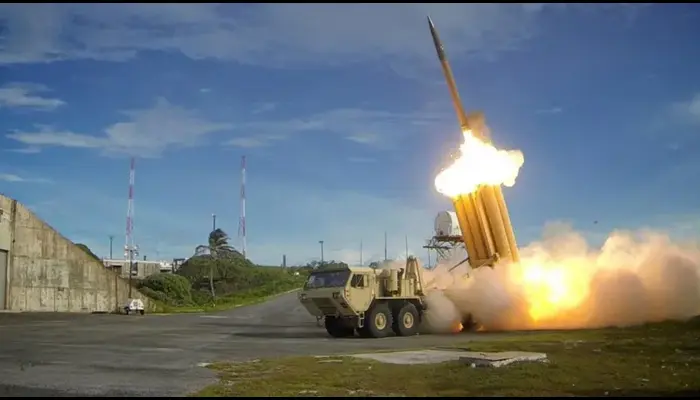The United States will send a high-altitude anti-missile system and military crew to Israel to strengthen its air defenses following a missile attack from Iran. The Pentagon confirmed the deployment of the Terminal High-Altitude Area Defense (THAAD) battery and its crew. This move is part of President Joe Biden’s order to help defend Israel.
On October 1, Iran launched nearly 200 ballistic missiles toward Israel. The Israeli military intercepted most of them, but some missiles struck central and southern Israel. Israel has not yet disclosed its exact response plan. However, Israeli Defense Minister Yoav Gallant warned that their retaliation would be “deadly, precise, and above all surprising.” In response, Iran vowed that it would retaliate against any Israeli attack.
The Pentagon emphasized that this deployment demonstrates the U.S.’s strong commitment to defending Israel and Americans in the region from future ballistic missile attacks by Iran. The United States had previously sent a THAAD battery to the Middle East after Hamas attacked southern Israel in 2023. Another THAAD battery was sent to Israel in 2019 for training and air defense exercises, but deploying a military crew to Israel is a more significant and rare move.
Iran claimed that the October 1 missile attack was in response to Israel’s recent assassinations. These included Hezbollah leader Hassan Nasrallah, an Iranian Revolutionary Guards Corps (IRGC) officer in Beirut, and Hamas leader Ismail Haniyeh in Tehran. Israel has ramped up its military campaign against Hezbollah, carrying out air strikes across southern and eastern Lebanon, including parts of Beirut.
Cross-Border Fire Since Last October
The cross-border fire between Israel and Hezbollah has been ongoing since last October when Hezbollah began launching rockets into Israel. Hezbollah stated that the attacks were in support of Palestinians in Gaza and said they would cease if a ceasefire were agreed upon. However, international efforts to mediate a ceasefire between Israel and Hamas in Gaza have failed so far.
Read: Israel Launches Cyberattack on Iran’s Nuclear Facilities
The THAAD system, made by Lockheed Martin, provides another layer of missile defense for Israel. It can intercept short, medium, and long-range threats both inside and outside the atmosphere. THAAD missiles, which have a range of up to 200 kilometers, use a “hit-to-kill” technique to neutralize targets.
Israel’s missile defense system is already robust. It includes the Iron Dome for short-range rockets, David’s Sling for longer-range weapons, and Arrow 2 and 3 for ballistic missiles launched from over 1,000 kilometers away. Defending against ballistic missiles is especially challenging due to their high speed and unpredictable flight path, particularly in their final phase.
Hezbollah in Lebanon, which receives significant support from Iran, reportedly has around 150,000 rockets at its disposal, according to the Center for Strategic and International Studies.
Follow us on Google News, Instagram, YouTube, Facebook,Whats App, and TikTok for latest updates
